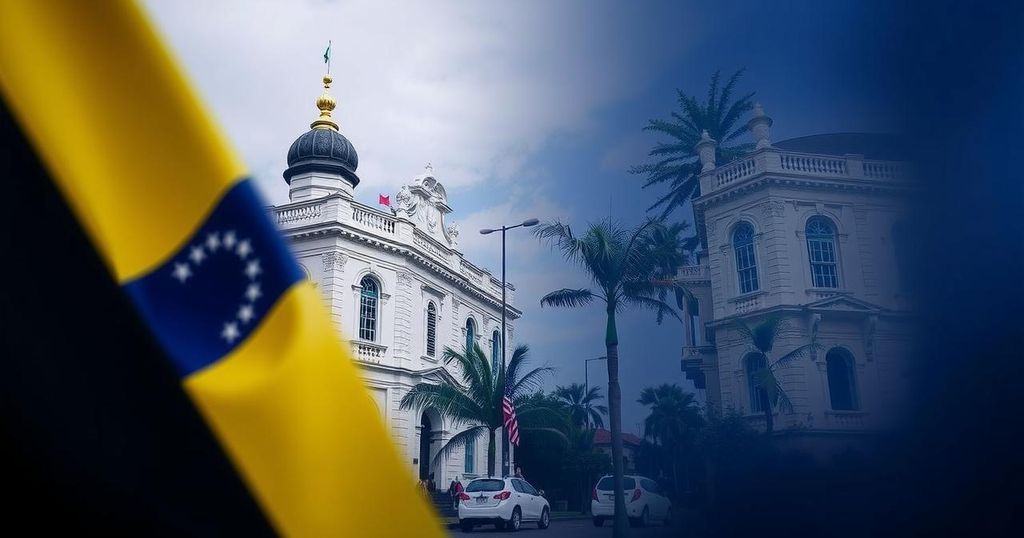Venezuela Refutes Claims of Harassment Against Argentina’s Embassy in Caracas

Venezuela’s Interior Minister Diosdado Cabello denied accusations of besieging Argentina’s Embassy, following claims of harassment made by President Javier Milei’s government. Six associates of opposition leader María Corina Machado have taken refuge there, leading to heightened tensions. Argentina condemned alleged intimidation tactics, while Cabello dismissed the claims as politically motivated, labeling Machado a “terrorist” amidst ongoing unrest and electoral fraud allegations.
Venezuela’s Interior Minister, Diosdado Cabello, categorically dismissed allegations from Argentina regarding the supposed besieging of its Embassy in Caracas. This denial follows statements from President Javier Milei’s administration, which accused the Venezuelan government of engaging in a harassment campaign against the diplomatic mission. Since March, six associates of opposition leader María Corina Machado have sought refuge within the Embassy, leading to heightened diplomatic tensions between the two countries. Cabello referred to Milei as a “fascist” and questioned the nature of the accusations directed at Venezuela during a press conference for the ruling party.
Argentina’s Foreign Ministry has recently condemned what it describes as acts of intimidation occurring at the Embassy, demanding protections for those seeking asylum. They asserted that the presence of armed troops and the obstruction of access to the Embassy impinge upon the safety guaranteed to diplomatic facilities under international law. Furthermore, concerns were raised regarding interruptions to the power supply at the Embassy, to which Cabello responded dismissively, saying that Venezuela would not bear the expenses for utilities.
Cabello has labeled Machado a “terrorist” amid ongoing political unrest, as she has remained in hiding since raising issues regarding alleged electoral fraud in the recent presidential elections. The opposition claims that their candidate, Edmundo González Urrutia, was unjustly defeated and subsequently fled to Spain following an arrest warrant issued by Venezuelan authorities. Additionally, Brazil previously intervened by taking custody of Argentina’s diplomatic delegation, although this status was later revoked by Caracas.
In light of these developments, the Brazilian government has reiterated its refusal to recognize Maduro’s election win while offering ongoing support for Argentina’s diplomatic interests.
The tension between Venezuela and Argentina has escalated over accusations by Argentina of harassment towards its Embassy in Caracas. Diplomatic relations have become strained primarily due to the political climate in Venezuela, surrounding the recent presidential elections and the subsequent allegations of electoral fraud. The involvement of regional powers, such as Brazil, reflects broader geopolitical dynamics in Latin America, particularly concerning governance and recognition of leadership legitimacy. The opposition’s claims against the Maduro administration and related asylum issues highlight ongoing challenges faced by dissidents in Venezuela.
The diplomatic conflict between Venezuela and Argentina illustrates the complexities of international relations in the context of political disagreement. With accusations of harassment and intimidation surrounding the Embassy, both nations face challenges in navigating their diplomatic commitments and responsibilities. As key figures from Venezuela’s government engage in a war of words, including derogatory remarks towards opposition leaders, the implications of these actions could resonate throughout the region, influencing both political discourse and international alliances.
Original Source: www.batimes.com.ar







